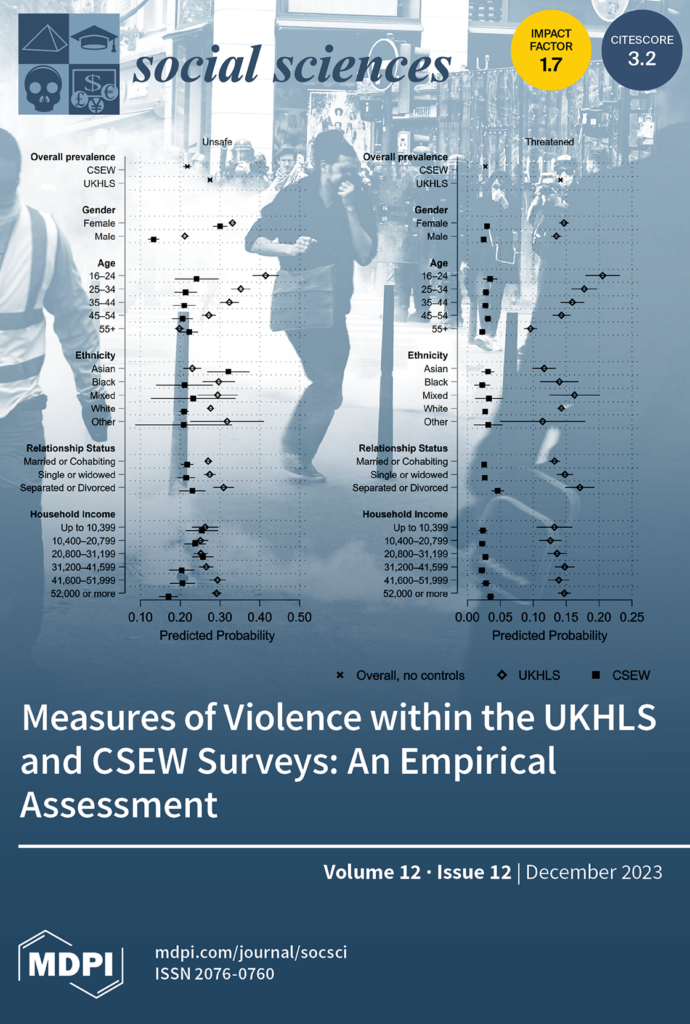Violence is a public health problem, with significant individual, economic, health and social care costs. Monitoring violence trends and distribution is a key step of a public health approach to violence prevention.
Health service data in England and Wales are used to monitor temporal change in violence prevalence. However, administrative data relies on service contact and recording practices, while nationally representative surveys, such as the Crime Survey for England and Wales (CSEW), record information on violence even when services were not sought. The Office for National Statistics (ONS) uses CSEW to estimate prevalence of violent crime and changes over time, publishing these for England and Wales combined. Therefore, there is a need to examine whether trends in violence in Wales differ from trends in England, which is the aim of this report.
Dr Polina Obolenskaya led the study, Temporal trends in prevalence of violence in Wales: analysis of a national victimisation survey, with VISION colleagues Dr Anastasia Fadeeva, Emma Barton, Dr Alex Walker, Lara Snowdon and Professor Sally McManus. Using CSEW data, for years 2002–2020, they compared trends in prevalence of violence victimisation between Wales and England, for all adults and by gender.
Country-disaggregated data shows that the prevalence of violence was generally lower in Wales than in England for the first decade of the century. Analyses by gender shows further disparities between countries. Males in Wales and England and females in England experienced a decline in violence victimisation between 2002 and 2015 but there was no decline in violence for females in Wales until after 2016. This decline in violence for females in Wales differed for females in England who experienced an upturn in prevalence of violence from 2015.
Different patterns of violence in England and Wales indicate that relying on combined estimates of violence for England and Wales in strategy development and planning in Wales should be avoided. Further work is required to understand why trends differ between England and Wales, including analyses accounting for socioeconomic and demographic characteristics of each population, as well as thorough considerations of potential policy drivers.
Recommendation
Given differences in prevalence and trends in violence between Wales and England, relying on estimates based on the countries combined to inform strategic planning in Wales is problematic. Using Wales-specific estimates and trends in violence is therefore recommended.
To download: Temporal trends in prevalence of violence in Wales: analysis of a national victimisation survey
To cite: P. Obolenskaya, A. Fadeeva, E.R. Barton, A. Walker, L.C. Snowdon, S. McManus, Temporal trends in prevalence of violence in Wales: analysis of a national victimisation survey,
Public Health, Volume 245, 2025,105775, ISSN 0033-3506, https://doi.org/10.1016/j.puhe.2025.105775.
For further information, please contact Polina at polina.obolenskaya@citystgeorges.ac.uk
Photograph licensed under Adobe Stock subscription
